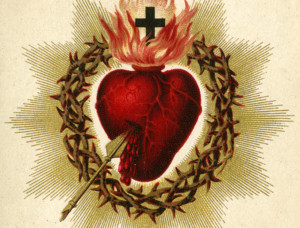A few weeks ago, while shopping, I heard a song that took me back to the summer of 1985. I had fond and tranquil feelings associated with the song and that summer. This struck me as odd,  seeing that in 1985 my parents were in the midst of a divorce. The song, “The Boys of Summer” by Don Henley (which I don’t particularly like), seemed to have taken me back to a much more specific memory. I spent a good deal of time that summer at a nearby park where the city of Green Bay organized a variety of activities. There were two girls, Dawn and Sally, who also spent time there, and we enjoyed flirting with each other in the then-innocent ways of fourteen-year-olds. One day, as I was aimlessly walking around a grassy part of the western end of the park nearest my home, I caught sight of them walking toward me. As if by some prearranged plan, they looked at each other and suddenly charged and tackled me to the ground, laughing. I was an extremely modest kid, disliking even to wear shorts in the summer except when playing basketball or running. I make this point because, in today’s hyper-sexualized world, it’s important to stress the overall chastity of this amusing expression of puppy-love, and the consequent effect, why it is what I remember about the summer of 1985. I wasn’t in the habit of thinking myself lovable at that time in my life, and I was genuinely surprised to have two attractive girls suddenly pay me such attention. Since that time, I’ve had experiences that evoked similar feelings, that of being lovable in spite of it all. Beginning in about my twenty-fourth year, I began to have this feeling more regularly, and almost always in connection with God rather than specific persons (though interaction with specific persons continued to occasion it).
seeing that in 1985 my parents were in the midst of a divorce. The song, “The Boys of Summer” by Don Henley (which I don’t particularly like), seemed to have taken me back to a much more specific memory. I spent a good deal of time that summer at a nearby park where the city of Green Bay organized a variety of activities. There were two girls, Dawn and Sally, who also spent time there, and we enjoyed flirting with each other in the then-innocent ways of fourteen-year-olds. One day, as I was aimlessly walking around a grassy part of the western end of the park nearest my home, I caught sight of them walking toward me. As if by some prearranged plan, they looked at each other and suddenly charged and tackled me to the ground, laughing. I was an extremely modest kid, disliking even to wear shorts in the summer except when playing basketball or running. I make this point because, in today’s hyper-sexualized world, it’s important to stress the overall chastity of this amusing expression of puppy-love, and the consequent effect, why it is what I remember about the summer of 1985. I wasn’t in the habit of thinking myself lovable at that time in my life, and I was genuinely surprised to have two attractive girls suddenly pay me such attention. Since that time, I’ve had experiences that evoked similar feelings, that of being lovable in spite of it all. Beginning in about my twenty-fourth year, I began to have this feeling more regularly, and almost always in connection with God rather than specific persons (though interaction with specific persons continued to occasion it).
Around the same age of twenty-four, I began to realize how many people seem not to have this kind of experience. For example, I began to realize how many of my acquaintances were altering their bodies for cosmetic purposes (this includes tattoos). It was as if we were not lovable as we are, that there is something wrong with our bodies, that they must be improved upon. Needless to say, we have become increasing radical on this point in the last quarter century, with more and more of us not accepting the biological sex with which we were born and the natural implications of this bodily reality.
What I’m getting at in this post is the idea that we have forgotten that we are lovable as we are. I sense this even, alas, amidst many devoted Catholics. It’s an easy mistake to make in the midst of anxiety about the Church and the world. But we will not change the social climate of either one unless we are convinced that Jesus Christ came to save sinners, and did so not grudgingly, but out of the everlasting love that made the world, that fashioned each of us individually, that cherishes every son and daughter of Adam. I can’t overstress this point: You are loved and you are lovable.
 There’s always that voice of the tempter in us who attempts to trick us into thinking otherwise, that calls to mind our failings, the insults and mockeries we’ve endured at the hands of others and doled out ourselves. Tomorrow, we celebrate the feasts of Saints Peter and Paul. In his lovely book I See Satan Fall Like Lighting, the late Rene Girard writes beautifully of how Peter and Paul are related by their experience of Christ’s love in spite of their manifest failings. This is Christ’s gift of forgiveness, exemplified by the Cross and the outpouring of grace from His Sacred Heart. Paul is especially emphatic on this point–we don’t experience true joy and true salvation until we understand Who Christ is. The Jesus Christ who encounters Paul on the road to Damascus is not one of harsh judgment and condemnation, in spite of Paul’s malice toward the Church! Saul/Paul is lovable even as the worst kind of sinner, a persecutor of the Church, and he is devastated by this revelation (in a good way). Before his missionary journeys, Paul spends over a decade reorienting himself around the fact that “the Son of God…loved me and gave himself for me [Galatians 2: 20].” Loved me, not us in general. Perhaps we need to take more seriously how radical this message is and, like Paul, take the time to let it sink in, to inform everything that we do.
There’s always that voice of the tempter in us who attempts to trick us into thinking otherwise, that calls to mind our failings, the insults and mockeries we’ve endured at the hands of others and doled out ourselves. Tomorrow, we celebrate the feasts of Saints Peter and Paul. In his lovely book I See Satan Fall Like Lighting, the late Rene Girard writes beautifully of how Peter and Paul are related by their experience of Christ’s love in spite of their manifest failings. This is Christ’s gift of forgiveness, exemplified by the Cross and the outpouring of grace from His Sacred Heart. Paul is especially emphatic on this point–we don’t experience true joy and true salvation until we understand Who Christ is. The Jesus Christ who encounters Paul on the road to Damascus is not one of harsh judgment and condemnation, in spite of Paul’s malice toward the Church! Saul/Paul is lovable even as the worst kind of sinner, a persecutor of the Church, and he is devastated by this revelation (in a good way). Before his missionary journeys, Paul spends over a decade reorienting himself around the fact that “the Son of God…loved me and gave himself for me [Galatians 2: 20].” Loved me, not us in general. Perhaps we need to take more seriously how radical this message is and, like Paul, take the time to let it sink in, to inform everything that we do.
One moment, Saul was acting with the utmost urgency, trying to stop the Christians at all costs. The next, Paul had laid that urgency aside, and gradually emerged as the great Apostle to the Gentiles. The change was an encounter with Love.
The loss of confidence to which I alluded three paragraphs ago is, to a certain extent, the founding fall of modernity. The temptation of science and technology is the temptation to find more and more things “wrong” with the cosmos as it is and to make alterations based on our own misgivings. It is no wonder that the modern Church has seen the rise of devotions like the Sacred Heart and Divine Mercy that continually emphasize the boundless love that is God. The Spirit continues to speak to us, to call us back to this primordial realization: “There is therefore now no condemnation for those who are in Christ Jesus [Romans 8: 1].” Go and read Romans 8! “If God is for us, who is against us? [v. 31]”
I am sure that neither death, nor life, nor angels, nor principalities, nor things present, nor things to come, nor powers, nor height, nor depth, nor anything else in all creation, will be able to separate us from the love of God in Christ Jesus our Lord [v. 38].
It was this realization that drew me to monastic life. More than one of my acquaintances interpreted my entry into monastic life as an attempt to flee from responsibility. Maybe in one sense that is true–it is precisely the great burden that the modern West has taken on, that of torturing the secrets out of nature in order to fix what God doesn’t seem worried about fixing, that separates us from the filial assurance that “all shall be well, and all shall be well, and all manner of thing shall be well.*” Mysteriously, when we discover ourselves to be lovable and loved, the whole world withers away before the “Love that moves the sun and the other stars [Paradiso XXXIII: 145].” The world that seems so important, so menacing, so urgent :
The little threshing floor that so incites our savagery was all…revealed to me while I wheeled with the eternal Gemini. My eyes then turned again to the fair eyes [of Beatrice, the God-bearer; Paradiso XXII: 150-154].
May His Most Sacred Heart be a daily reminder of “the perfect love that casts out fear [1 John 4: 18],” that we may be credible evangelists to our suffering world!
* The words of Jesus to Julian of Norwich